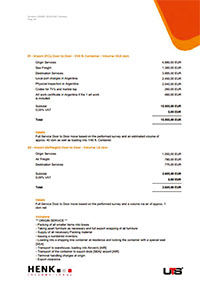Short-term assignments:

The right motivation for a short spell abroad
Short-term assignments are becoming more popular, and are viewed as a viable alternative to longer spells abroad. Highly-qualified staff spend a limited time period working on a project abroad. In total, it is more efficient to set up three short-term assignments abroad than one long-term stay. In addition, short stays abroad involve fewer risks and less cost.
However, companies don't always find it easy to persuade key staff members and managers to spend several months abroad on a project. The enticement of more money is often not enough. Potential assignees are more interested in whether they can maitain their high quality of life at destination, and also if the whole process of moving there and back is kept simple.
The advantages of short-term assignments
A move abroad for a short period brings a range of advantages for the assignee, the family and the company:
A complete move is not necessary in most cases
The existing house or apartment can be kept
No need to deregister with the authorities
There is no change in the existing job or position. On return, the old job is continued.
Legal issues like employment law, taxation and social security are less complicated than longer stays abroad
Special features of short-term assignments
Good preparation is important, even if the stay abroad is short.
What do assignees need to watch out for if they decide on a short-term assignment?
Does a transfer policy exist?
What are the terms of the assignment contract? Are mutual rights and obligations defined?
Does the company cover the costs for the hotel, temporary housing, intercultural and language training? What about a visa? Who looks after what?
What are the country's entry requirements and what documents are needed? How long does it take to get these documents?
Where are taxes on salary paid? Must any taxes be paid where the work takes place? How are these paid?
What personal legal obligations do expats have in the country of destination?
Are there any legal possibilities to minimise the tax burden (e.g. salary split, deferred compensation)? Can the company provide information, or is a tax consultant required?
From a legal point of view, the company has to look after many more factors than the assignee needs to know about. It can pay to know about these, too.







